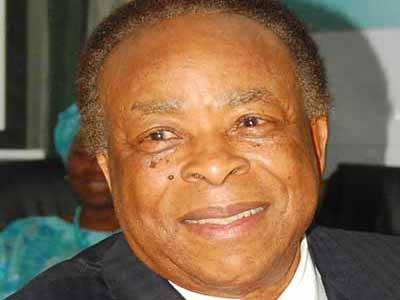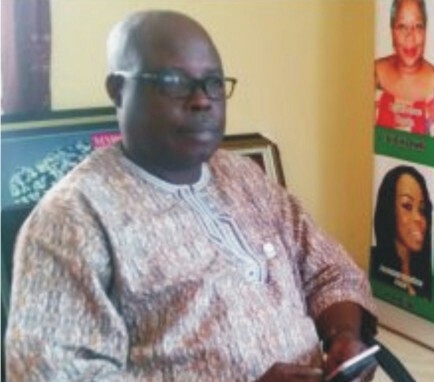Govt Should Hand Off Oil For Private Sector – Vincent

Mr. Vincent Nwani, is the Director of Research and Advocacy, Lagos Chamber of Commerce and Industry (LCCI).In this interview with Emeka Chukwuaku, he talks about the causes of the recent fuel scarcity, the implications of further reduction of pump price and the effects of the global dwindling oil price. Excerpt.
How has the falling oil prices affected investment from the chamber’s perspective?
We know that over the last six months, oil price has fallen from $115 per barrel to what it is now, about $52 per barrel. In fact, it even fell to $43 per barrel at some point. This has affected Nigeria’s economy adversely and now affected the activities of the Lagos Chamber of Commerce and Industry.
How does it affect investment?
Remember that oil is the mainstay of Nigeria’s economy through which the government derives about 80% of its revenue. Now, if anything should happen to the oil that will lead to its price being crashed by over sixty percent, it means that the Nigerian economy revenue has been decreased by sixty percent. The implication of that is that the government of Nigeria is a high spender. 74% of the total spending in the economy spending is done by the government, so anything that affects the power of government to spend, will invariably affects the private sector. Most of the members of the chamber are contractors. Some are in building, real estate, construction, some are in retail, and some are suppliers.
So, if anything happens to the ability of the government to give new contract or respect their existing contracts due to the fall in oil price and revenue, of course it will have a trickledown effect on the chamber and its members. So to answer your question, oil price has affected us adversely, beyond the fact that government revenue has also put pressure on the dollar because we sell oil to get dollar and when you get this dollar, your exchange rate is strong.
Now Nigeria does not get so many funds selling oil again and that have affected their exchange rate. Their exchange rate has depreciated. From as low as N155 per dollar to what it is now, N200. Some even said that it is N225. Most of our members are importers, they import their raw materials, some are traders, they import already made goods. Some of them open their letter of credit (LC) with $158, before the goods will arrive, it is now $220. Of course banks are financing, they need more, that cripple businesses. So I can keep going on and on about the impact of the falling oil prices. It has a trickledown, multifaceted effect. It affected the private sector through two different sources and I have just mentioned the sources.
Let’s look at fuel scarcity. Should there be scarcity at all considering the fall in oil prices?
The fall in oil prices makes for surplus fuel in the market, so why are we having scarcity in the midst of supposed plenty? From the natural point of view, that is what it is supposed to be, but in our case it is not so. That is also the problem that the Lagos Chamber of Commerce has been talking about. You have a problem if you are crude oil rich economy country but cannot create jobs, develop skills and do other things. Like I said before, when oil price moved from $120, $115 per barrel to $43, $52 per barrel, naturally, the pump price of oil is supposed to go down in that proportion, if we are refining in the country. But as oil price was going down, exchange rate was going up, so the gain that was made from the crude oil going down that was supposed to trickledown to pump price of fuel and diesel was taken away by the exchange rate increase. The implication of these was that at some point, government was under pressure to lower pump price of fuel like other countries did. In places like the United States, a gallon of fuel fell from $3.60cent to $1.45cents. Nigeria was still selling our own N97, so there was a whole full of pressure on the government, especially during this election period, because they want to win election
They were muscled into reducing the oil price from N97 to N87. And remember that most of these people that import the fuel are private sector. Some of them borrowed money from banks and they told the government, we did not say that you should not reduce fuel pump price but these are the implications. It means that the subsidy content that paid to these oil marketers will be more. But what if government does not have money in its coffers, the earnings from crude oil has failed, so it is a double edge evil that is affecting everything and that is how we arrive at this fuel scarcity. Government has responded because they need to put the queue away because this is election period and nobody wants to lose election. It is just a window dressing, let’s face it. The fuel scarcity is with us, it is around us and it will come in full dose. When? I don’t know, but the truth is, it will come very soon.
So, what can you really pin-point as the major cause of the fuel scarcity?
I have answered this question before but I want to answer it in a different way. The main is that Nigeria should be refining its crude oil at home here.
But the scarcity has not always been like this?
No, I disagree even when I was in school as an undergraduate, there has always been scarcity. There was a time about fifteen years ago; in fact I could not get transportation to travel back to school because of fuel scarcity, during Abacha time. This is not the first time, it has always been there. Fuel scarcity has always been with us for a long time. It comes and goes. Anything can happen on the high sea, anything can happen during loading, anything can happen during off-loading. Even when you are off loading in Lagos, you still need to truck it because our pipelines are not working from Lagos to Calabar, from Lagos to Maiduguri and various other parts of the country.
Trucking has its own is issue with bad roads and everything, thieves on the road, kidnappers. So before you get to where you are going in some cases, the tanker drivers will divert it from where it is going. So even if you have fuel in Lagos because it is going available where it is imported, the far distance places in the east and north will continue to suffer high prices as a result of the cost of moving it from Lagos to those places.
How would a further reduction like about N10 in fuel pump price affect the economy?
It will aggravate the situation and create more problems. It is reduced by N10 and we can feel the impact. If you reduce it again, the impact it will have is that the amount of money government will be paying as subsidy to oil marketers and importers will be tripled. Government has to look for more money to be able to do that. The money that should have been used to tar roads, pay salary, build hospitals, create employment, pay Judges, they will have to use that money to pay the oil importers and marketers. It will take away money left for developmental purposes and use it to pay for subsidy.
You see the position of the Lagos Chamber of Commerce and industry is that, government should use this opportunity to hands off everything concerning subsidy, abolish subsidy, until that is done, the private sector and investors will not be encouraged to come into the country because Nigeria is a strong consuming country. Until subsidy issue is done with, it will be difficult to get a serious investor to come and build refinery in Nigeria. And you know when we build this refinery, we are not only going to produce kerosene, fuel and diesel, there are other derivatives for industries, manufacturers, for fertilizer peoduction, gasoline, bitumen etc and that will make sure that fuel scarcity becomes history. Nigeria graduates will get jobs and learn skills in manufacturing and crude refinery. It is not bad. Fuel will be available at every point in time. And whenever there is a slide in the international oil price, we will enjoy the benefits. Because if there are refineries in the country this is the time we will be very happy with our selves. When I was small, water was almost costlier than fuel in Nigeria because we were refining then, so we should take the bull by the horn and say bye-bye to subsidy scheme.
Is it that our refineries are not working or not working to full capacity?
We have four refineries in the country. Right now the four refineries in the country put together are working at twenty five percent capacities. We have two in Port Harcourt, one in Warri, one in Kaduna. If the four refineries are working at full capacity, they will only manage to refine 350, 000 barrels of oil; in a day. That is 80% of Nigeria consumption. We are saying that even if four of them are working at full capacity, we will still need to import 20% of what we need to power the country. But now that they are working at 25%, it will give you the idea of what we are talking about. I read in paper the other day that Nigeria is still spending money on turn around maintenance.
I read that they are spending about 800 million on turn around maintenance. I remember that these refineries are built on 30 years technology. There are new technologies. New technology that the money they want to spend on refurbishing or turn around maintenance can build a new modern refinery better than the four combined. If we want to attract private investments and experts into the industry government should hands off, it is not an area of the government; it is a pure private sector driven venture. They have to concentrate on providing security in the North East from Boko Haram, security in the South East, in the South-South from kidnappers, oil vandals and also put their acts together on building institutions, reducing corruption, social infrastructure, they should hands off the running of oil business in the country. Fuel and fuel administration should be a private sector thing.
I also learnt that the government gave importers N100 billion as a result of this fuel scarcity, what’s your take on that?
They claim that up until March, government owed them N250 billion outstanding subsidies. I remember that this outstanding subsidy is not just the difference between what they bought it and what they sell it, this differential is exchange rate differential. The exchange rate differential is part of the N250 billion. If government gave them N100 billion, I am not sure of that, what I heard was about fifty-something billion and it is not even in cash it is in paper of promise, like bonds. It is not in cash, it is in bonds. That bond is like a promise that they will pay.
Do you think government pegging the budget at $52 benchmark is politicized? Considering the fact that MTEF pegged at at$54 per barrel and bow the National Assembly pegged it at $52 per barrel?
It is not politicized. The Federal government when they were pegging the benchmark before never saw oil price going down to $43 per barrel, so what they did was pegging the benchmark at a realistic level in the light of the current reality in the world. It was just that when they worked on the budget before, things were a bit fair, but today a lot of things have changed. And it does not look as if oil price will go up to $100 per barrel very soon.







